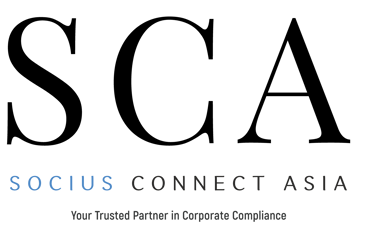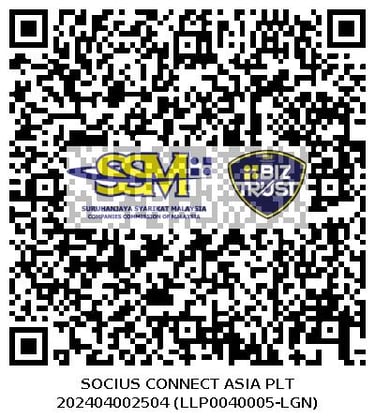Hiring Foreign Talent in Malaysia: Employment Pass vs. Employer of Record (EOR)
Thinking of hiring foreign talent in Malaysia? Learn the key differences between using an Employment Pass (EP) and an Employer of Record (EOR). Find out which option is faster, more cost-effective, and best suited for your business expansion plans.
STARTUPCORPORATESHAREHOLDERSENTREPRENEURDISPUTELEGALLAWFINANCESOCIUS CONNECT ASIA LLPINCORPORATION IN ASIACOMPANY SET UP
7/26/20252 min read


Malaysia is a growing hub for business expansion in Southeast Asia. With its strategic location, multilingual workforce, and attractive investment policies, it’s no surprise that many companies are looking to bring in skilled foreign talent.
But here’s the big question:
👉 Should you hire directly and sponsor an Employment Pass (EP), or use an Employer of Record (EOR) to handle everything for you?
Let’s break it down.
Option 1: Employment Pass (EP)
The Employment Pass is Malaysia’s official work visa for expatriates. It allows skilled professionals to legally live and work in Malaysia.
When You Should Use the EP Route
You already have a registered Malaysian company
You’re hiring long-term, senior-level talent
You want full control over the employee’s benefits, payroll, and management
You plan to build a permanent presence in Malaysia
Key Things to Know About the EP
Sponsorship: Your Malaysian entity must sponsor the visa
Categories:
Category I (RM 10,000+/month) – up to 5 years, family allowed
Category II (RM 5,000–9,999/month) – up to 2 years, family allowed
Category III (RM 3,000–4,999/month) – 1 year, no dependents
Compliance: You’re responsible for immigration, payroll taxes, SOCSO, EPF, and renewals
Costs: Visa fees start at RM 2,000 per Employment Pass + Dependent Pass fees if applicable
Best for: Companies committed to hiring in Malaysia long-term.
Option 2: Employer of Record (EOR)
An Employer of Record is a service provider that legally employs staff on your behalf in Malaysia. The EOR becomes the official employer on paper, while you manage the employee’s work directly.
When EOR Makes More Sense
You don’t have a Malaysian entity yet but want to hire quickly
You’re testing the Malaysian market before setting up a full company
You need to hire short-term or project-based talent
You want to reduce compliance risks
How an EOR Works
The EOR already has a registered Malaysian entity
They sponsor the visa, manage payroll, taxes, and benefits
You simply pay a monthly fee, and they take care of local legal requirements
The employee works for you operationally, but is employed legally by the EOR
Best for: Companies that want fast, low-risk hiring without immediate entity setup.
Which One Should You Choose?
If you’re planning long-term operations in Malaysia, it makes sense to set up your own entity and sponsor Employment Passes.
If you’re testing the market or need immediate hiring without a local entity, an EOR is the smarter choice.
Some companies even start with an EOR to hire quickly, then transition to direct Employment Pass sponsorship once they establish their Malaysian entity.
© SOCIUS CONNECT ASIA LLP
About us




202404002504 (LLP0040005-LGN)
